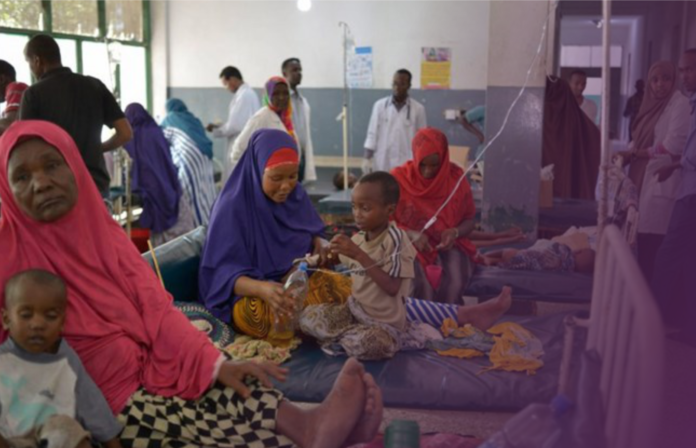Somalia’s cholera epidemic began in Maroodijeh and Awdal in December 2023 and expanded to Hargeisa. As of February 5, 2024, the Ministry of Health and Development recorded 474 cases and 9 deaths, above the WHO’s emergency threshold.
The cholera outbreak in Somaliland is caused by poor water quality, sanitation, overburdened health facilities, and reduced immune systems, especially in malnourished children. Poor, conflict, and extreme weather conditions limit clean water supplies, worsening the situation.
On December 6, 2023, the Ministry of Health and Development reported an increase in cholera cases from December 6 to January 18, 2024. Four of 14 Rapid Diagnostic Tests (RDT) and Culture cases tested positive for AWD/Cholera, with Culture confirming their results, showing 29% RDT and 21% Culture positivity.
The Somalia Red Crescent Society, the Ministry of Health, and other agencies are fighting the disease. In keeping with the national policy, community volunteers prepared to respond to the crisis are vital to the National Society.
National Society is prioritizing an inclusive response for vulnerable populations based on gender, ethnicity, age, disability, and HIV/AIDS status. Sphere principles require the organization to be transparent and accountable.
National Society collects, analyzes, and distributes data and lessons learned with partners and others to improve future responses.
The Ministry of Human and Development confirmed the outbreak on February 4, 2024, as a result of Somalia’s cholera crisis.
Collaboration, inclusion, and data-driven methods are essential to Somalia’s cholera fight. Relevance means further help and global attention for the timely and successful public health emergency response.



